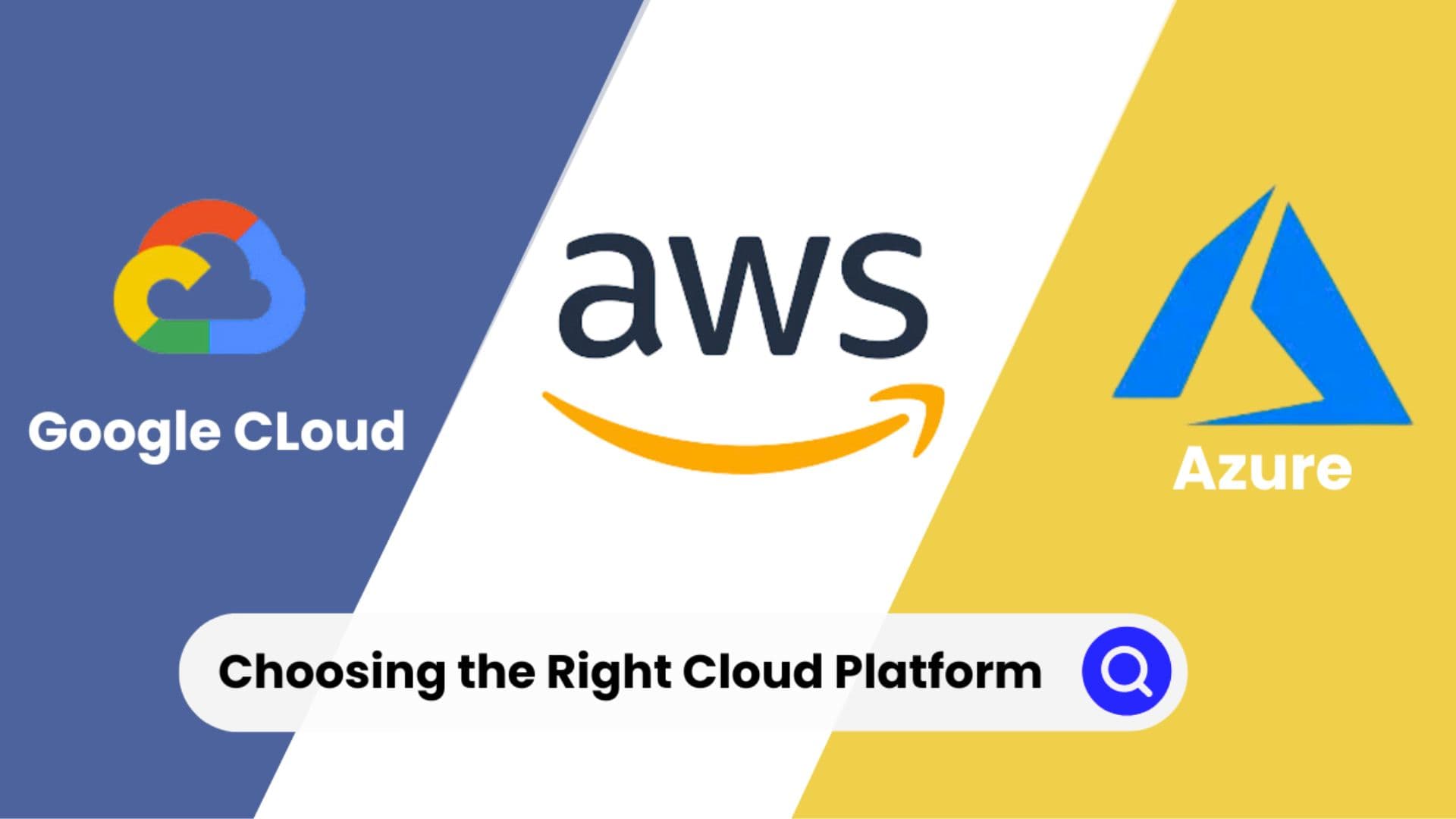Telemedicine Platform Development: Technologies and Best Practices
The global telemedicine market has experienced unprecedented growth, reaching $87.21 billion in 2023 and projected to grow at a CAGR of 26.6% through 2030. This explosive growth, accelerated by the COVID-19 pandemic and evolving patient expectations, has created immense opportunities for healthcare organizations and technology companies to develop innovative telemedicine platforms that bridge the gap between patients and healthcare providers.
Understanding Telemedicine Platform Architecture
Core Components of Modern Telemedicine Platforms
Patient Portal Interface The patient-facing application serves as the primary touchpoint for healthcare consumers, requiring intuitive design, seamless navigation, and comprehensive functionality including appointment scheduling, medical history access, prescription management, and secure messaging.
Provider Dashboard Healthcare professionals need sophisticated tools for patient management, including electronic health record integration, clinical decision support systems, prescription management, and comprehensive patient communication capabilities.
Administrative Console Healthcare administrators require robust management tools for user administration, billing integration, compliance monitoring, reporting and analytics, and system configuration management.
Integration Layer Modern telemedicine platforms must seamlessly integrate with existing healthcare infrastructure, including Electronic Health Records (EHR), Hospital Information Systems (HIS), Laboratory Information Systems (LIS), and billing and insurance processing systems.
Essential Technologies for Telemedicine Development
Video Communication Technologies
WebRTC Implementation Web Real-Time Communication (WebRTC) provides the foundation for browser-based video consultations without requiring additional plugins or software installations.
Technical Implementation:
// WebRTC peer connection setup
const peerConnection = new RTCPeerConnection({
iceServers: [
{ urls: 'stun:stun.l.google.com:19302' },
{
urls: 'turn:your-turn-server.com:3478',
username: 'user',
credential: 'password'
}
]
});
// Handle incoming video stream
peerConnection.ontrack = (event) => {
const remoteVideo = document.getElementById('remoteVideo');
remoteVideo.srcObject = event.streams[0];
};
Bandwidth Optimization Implement adaptive bitrate streaming to ensure consistent video quality across varying network conditions:
- Dynamic resolution adjustment based on network performance
- Audio-first fallback for low-bandwidth connections
- Automatic codec selection (VP8, VP9, H.264)
- Network quality monitoring and reporting
Security Considerations
- End-to-end encryption for all video communications
- DTLS (Datagram Transport Layer Security) for data channel encryption
- Identity verification before video session initiation
- Session recording encryption and secure storage
Mobile Application Development
Cross-Platform Development Utilizing frameworks like React Native or Flutter enables simultaneous iOS and Android development while maintaining native performance and user experience.
React Native Implementation Example:
import { RTCPeerConnection, RTCView, mediaDevices } from 'react-native-webrtc';
const TelemedicineCall = () => {
const [localStream, setLocalStream] = useState(null);
const [remoteStream, setRemoteStream] = useState(null);
const initializeCall = async () => {
const stream = await mediaDevices.getUserMedia({
video: true,
audio: true
});
setLocalStream(stream);
};
return (
<View style={styles.container}>
<RTCView streamURL={localStream?.toURL()} style={styles.localVideo} />
<RTCView streamURL={remoteStream?.toURL()} style={styles.remoteVideo} />
</View>
);
};
Offline Capabilities Implement robust offline functionality for critical features:
- Appointment scheduling synchronization
- Medical record caching
- Prescription history access
- Emergency contact information
Backend Infrastructure
Microservices Architecture Design scalable backend systems using microservices to handle different aspects of telemedicine functionality:
User Management Service
- Authentication and authorization
- Profile management
- Role-based access control
- Multi-factor authentication implementation
Appointment Management Service
- Scheduling and calendar integration
- Reminder notifications
- Waitlist management
- Provider availability optimization
Communication Service
- Video call orchestration
- Secure messaging
- File sharing and document management
- Call recording and storage
Integration Service
- EHR system connectivity
- Third-party API management
- Data synchronization
- Compliance monitoring
HIPAA Compliance in Telemedicine Development
Data Protection Requirements
Encryption Standards Implement comprehensive encryption for all patient data:
- AES-256 encryption for data at rest
- TLS 1.3 for data in transit
- End-to-end encryption for video communications
- Encrypted database storage with column-level encryption
Access Controls
- Role-based access control (RBAC) implementation
- Multi-factor authentication for all users
- Session management and automatic timeout
- Audit logging for all data access
Business Associate Agreements Ensure all third-party services and vendors sign appropriate Business Associate Agreements:
- Cloud hosting providers
- Video streaming services
- Payment processing partners
- Analytics and monitoring tools
Audit and Compliance Monitoring
Comprehensive Audit Logging
const auditLogger = {
logUserAccess: (userId, action, resourceId, ipAddress) => {
const auditEntry = {
timestamp: new Date().toISOString(),
userId,
action,
resourceId,
ipAddress,
sessionId: getCurrentSessionId(),
userAgent: req.headers['user-agent']
};
// Encrypt and store audit log
encryptAndStore(auditEntry);
},
logDataModification: (userId, tableName, recordId, changes) => {
// Log detailed data modification events
}
};
Compliance Monitoring Dashboard Develop real-time compliance monitoring capabilities:
- HIPAA violation detection
- Unusual access pattern identification
- Failed authentication monitoring
- Data breach risk assessment
User Experience Design for Telemedicine
Patient-Centric Interface Design
Accessibility Standards Ensure telemedicine platforms meet WCAG 2.1 AA accessibility guidelines:
- Screen reader compatibility
- Keyboard navigation support
- High contrast mode options
- Multilingual support
Intuitive Navigation Design clear, logical navigation paths:
- Single-click appointment scheduling
- Easy access to medical history
- Streamlined prescription refill requests
- Emergency contact quick access
Mobile-First Design Prioritize mobile user experience:
- Touch-optimized interface elements
- Responsive design for various screen sizes
- Offline functionality for critical features
- Battery optimization for video calls
Provider Workflow Optimization
Clinical Decision Support Integrate clinical decision support tools:
- Drug interaction checking
- Allergy alert systems
- Clinical guideline integration
- Diagnostic assistance tools
Electronic Prescribing Implement comprehensive e-prescribing capabilities:
- Real-time prescription benefit verification
- Generic substitution suggestions
- Pharmacy integration
- Controlled substance prescribing (where legally permitted)
Documentation Templates Provide customizable documentation templates:
- Specialty-specific templates
- Voice-to-text integration
- Structured data entry
- Progress note generation
Integration with Healthcare Systems
Electronic Health Record (EHR) Integration
HL7 FHIR Implementation Utilize HL7 FHIR standards for seamless healthcare data exchange:
// FHIR patient resource creation
const createPatientResource = (patientData) => {
return {
resourceType: "Patient",
id: patientData.id,
identifier: [{
use: "usual",
type: {
coding: [{
system: "http://terminology.hl7.org/CodeSystem/v2-0203",
code: "MR"
}]
},
value: patientData.medicalRecordNumber
}],
name: [{
use: "official",
family: patientData.lastName,
given: [patientData.firstName]
}],
telecom: [{
system: "email",
value: patientData.email,
use: "home"
}],
gender: patientData.gender,
birthDate: patientData.dateOfBirth
};
};
API Gateway Implementation Implement secure API gateways for EHR connectivity:
- OAuth 2.0 authentication
- Rate limiting and throttling
- Request/response logging
- Error handling and retry logic
Laboratory and Imaging Integration
DICOM Integration For telemedicine platforms requiring medical imaging:
- DICOM viewer integration
- Image compression and optimization
- Secure image transmission
- Multi-device image viewing
Laboratory Results Integration
- Real-time lab result delivery
- Critical value alerting
- Trend analysis and visualization
- Historical result comparison
Performance Optimization and Scalability
Video Quality Optimization
Adaptive Streaming Implement adaptive bitrate streaming for optimal video quality:
const adaptiveStreaming = {
adjustQuality: (networkConditions) => {
if (networkConditions.bandwidth < 500) {
return { resolution: '480p', framerate: 15 };
} else if (networkConditions.bandwidth < 1000) {
return { resolution: '720p', framerate: 24 };
} else {
return { resolution: '1080p', framerate: 30 };
}
},
monitorNetwork: () => {
// Continuous network monitoring
navigator.connection?.addEventListener('change', handleNetworkChange);
}
};
Content Delivery Network (CDN) Implement global CDN for optimal performance:
- Geographic content distribution
- Video streaming optimization
- Static asset caching
- Edge computing capabilities
Database Optimization
Read Replicas and Caching Implement database optimization strategies:
- Read replica configuration for scalability
- Redis caching for frequently accessed data
- Database connection pooling
- Query optimization and indexing
Data Archival Strategies Develop comprehensive data lifecycle management:
- Automated data archival processes
- Compliance-driven retention policies
- Secure data disposal procedures
- Performance monitoring and optimization
Security Best Practices
Multi-Factor Authentication
Implementation Strategy
const mfaImplementation = {
initiateMFA: async (userId, primaryCredentials) => {
// Validate primary credentials
if (await validateCredentials(userId, primaryCredentials)) {
// Send OTP via SMS or email
const otp = generateOTP();
await sendOTP(userId, otp);
// Create temporary session
return createMFASession(userId);
}
},
completeMFA: async (sessionId, otpCode) => {
if (await validateOTP(sessionId, otpCode)) {
return createAuthenticatedSession(sessionId);
}
}
};
API Security
Rate Limiting and DDoS Protection Implement comprehensive API protection:
- Request rate limiting per user/IP
- Suspicious activity detection
- Automated blocking of malicious requests
- Captcha integration for suspicious behavior
Input Validation and Sanitization
const inputValidator = {
sanitizeInput: (input, type) => {
switch(type) {
case 'email':
return validator.isEmail(input) ? validator.normalizeEmail(input) : null;
case 'phone':
return validator.isMobilePhone(input) ? input.replace(/\D/g, '') : null;
case 'name':
return validator.escape(input.trim());
default:
return validator.escape(input);
}
}
};
Artificial Intelligence and Machine Learning Integration
Clinical Decision Support
Symptom Analysis AI Implement AI-powered symptom checking and triage:
class SymptomAnalyzer:
def __init__(self):
self.model = load_trained_model('symptom_analysis_model.pkl')
def analyze_symptoms(self, symptoms, patient_history):
# Process symptoms and medical history
features = self.preprocess_data(symptoms, patient_history)
# Generate risk assessment
risk_score = self.model.predict_proba(features)
# Provide recommendations
return {
'urgency_level': self.categorize_urgency(risk_score),
'recommended_actions': self.generate_recommendations(risk_score),
'specialist_referral': self.suggest_specialist(symptoms)
}
Predictive Analytics Develop predictive models for:
- Patient no-show prediction
- Health deterioration risk assessment
- Medication adherence prediction
- Care gap identification
Natural Language Processing
Clinical Documentation AI Implement NLP for automated clinical documentation:
- Speech-to-text transcription
- Clinical note structuring
- ICD-10 code suggestion
- Quality metric extraction
Regulatory Compliance and Certification
FDA Considerations
Software as Medical Device (SaMD) Understand FDA requirements for telemedicine platforms:
- Risk classification assessment
- Quality management system implementation
- Clinical validation requirements
- Post-market surveillance obligations
510(k) Submission Process For platforms requiring FDA clearance:
- Predicate device identification
- Substantial equivalence demonstration
- Clinical data requirements
- Software documentation standards
International Compliance
GDPR Compliance For international deployments, ensure GDPR compliance:
- Data processing lawful basis establishment
- Privacy by design implementation
- Data portability capabilities
- Right to erasure compliance
Regional Healthcare Regulations Consider local healthcare regulations:
- Medical licensing requirements
- Cross-border healthcare restrictions
- Local data residency requirements
- Telehealth practice guidelines
Testing and Quality Assurance
Comprehensive Testing Strategy
Functional Testing
- User registration and authentication flows
- Video call initiation and management
- Appointment scheduling and management
- Payment processing and billing
- EHR integration testing
Performance Testing
// Load testing example for video calls
const loadTest = {
simulateConcurrentCalls: async (callCount) => {
const promises = [];
for (let i = 0; i < callCount; i++) {
promises.push(initiateVideoCall());
}
const results = await Promise.allSettled(promises);
return analyzePerformanceResults(results);
}
};
Security Testing
- Penetration testing
- Vulnerability assessments
- HIPAA compliance validation
- Data encryption verification
User Acceptance Testing
Patient Testing Scenarios
- First-time user onboarding
- Appointment scheduling workflows
- Video call user experience
- Mobile app functionality
- Emergency contact procedures
Provider Testing Scenarios
- Clinical workflow integration
- EHR data synchronization
- Prescription management
- Patient communication tools
- Administrative dashboard usage
Deployment and DevOps
Cloud Infrastructure
Multi-Region Deployment Implement global deployment strategy:
- Primary and disaster recovery regions
- Database replication and failover
- Load balancing across regions
- Content delivery network integration
Container Orchestration
# Kubernetes deployment example
apiVersion: apps/v1
kind: Deployment
metadata:
name: telemedicine-api
spec:
replicas: 3
selector:
matchLabels:
app: telemedicine-api
template:
metadata:
labels:
app: telemedicine-api
spec:
containers:
- name: api
image: telemedicine-api:latest
ports:
- containerPort: 8080
env:
- name: DATABASE_URL
valueFrom:
secretKeyRef:
name: db-secret
key: url
Continuous Integration/Continuous Deployment
Automated Testing Pipeline
- Unit test execution
- Integration test validation
- Security scanning
- Performance benchmarking
- Compliance checking
Deployment Automation
- Blue-green deployment strategy
- Automated rollback capabilities
- Health check monitoring
- Performance metric collection
Monitoring and Analytics
Real-Time Monitoring
System Health Monitoring
const healthMonitor = {
checkSystemHealth: async () => {
const checks = {
database: await checkDatabaseConnection(),
videoService: await checkVideoServiceStatus(),
apiGateway: await checkApiGatewayHealth(),
externalIntegrations: await checkEHRConnectivity()
};
return {
overall: Object.values(checks).every(check => check.status === 'healthy'),
details: checks,
timestamp: new Date().toISOString()
};
}
};
User Experience Analytics
- Video call quality metrics
- User engagement tracking
- Feature usage analytics
- Performance bottleneck identification
Business Intelligence
Healthcare Outcomes Tracking
- Patient satisfaction metrics
- Clinical outcome improvements
- Cost reduction analysis
- Provider efficiency measures
Regulatory Reporting
- HIPAA compliance reporting
- Quality measure tracking
- Utilization statistics
- Adverse event monitoring
Future Trends in Telemedicine Technology
Emerging Technologies
Augmented Reality (AR) Integration
- Remote medical examination enhancement
- Surgical guidance applications
- Medical education and training
- Patient education visualization
Internet of Things (IoT) Integration
- Remote patient monitoring devices
- Wearable health sensors
- Smart home health integration
- Real-time vital sign monitoring
5G Network Optimization
- Ultra-low latency video calls
- High-definition medical imaging transmission
- Real-time remote surgery capabilities
- Enhanced mobile connectivity
Advanced AI Applications
Computer Vision for Diagnostics
- Skin condition analysis
- Eye examination automation
- Wound assessment and tracking
- Medication adherence monitoring
Personalized Medicine
- Genetic data integration
- Precision treatment recommendations
- Drug interaction prediction
- Personalized care plans
Working with Innoworks for Telemedicine Development
At Innoworks, we bring deep expertise in healthcare technology and regulatory compliance to every telemedicine platform development project. Our comprehensive approach ensures that your telemedicine solution not only meets current healthcare needs but is also positioned for future growth and technological advancement.
Our Telemedicine Development Expertise
Healthcare Domain Knowledge: Our team combines technical expertise with deep understanding of healthcare workflows, regulatory requirements, and clinical best practices.
Rapid Development Cycles: Utilizing our proven 8-week development cycles, we help healthcare organizations quickly deploy telemedicine solutions that meet immediate market needs while maintaining the highest quality standards.
Comprehensive Integration: We specialize in integrating telemedicine platforms with existing healthcare infrastructure, including EHR systems, billing platforms, and clinical workflows.
Scalable Architecture: Our cloud-native development approach ensures your telemedicine platform can scale from startup to enterprise-level usage while maintaining performance and security.
End-to-End Development Services
- Platform Architecture and Design
- Mobile and Web Application Development
- EHR and Healthcare System Integration
- HIPAA Compliance Implementation
- Video Communication Technology Integration
- AI and Machine Learning Capabilities
- Cloud Infrastructure and DevOps
- Ongoing Support and Maintenance
Get Started with Your Telemedicine Platform
Ready to develop a telemedicine platform that transforms healthcare delivery? Contact our healthcare technology experts to discuss your telemedicine development requirements and learn how we can help you build a secure, scalable, and innovative telehealth solution.
Related Resources:
- Healthcare Software Development Company: Expert Solutions for Medical Applications - Full-service healthcare software development
- Mobile App Development Company: Your Partner for Building Exceptional Applications - Cross-platform mobile solutions for telemedicine
Transform healthcare accessibility with cutting-edge telemedicine technology. Partner with Innoworks to develop telemedicine platforms that improve patient outcomes while expanding healthcare reach and efficiency.



